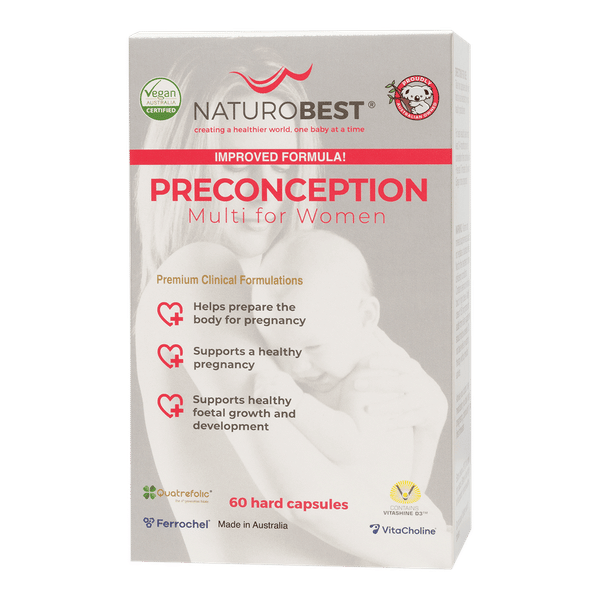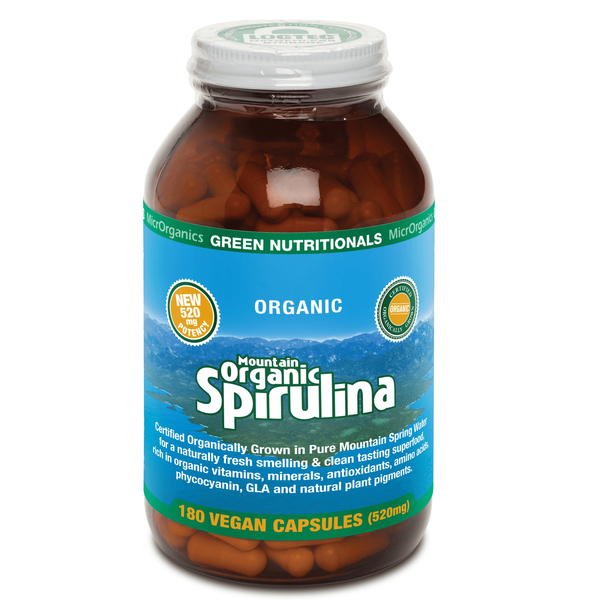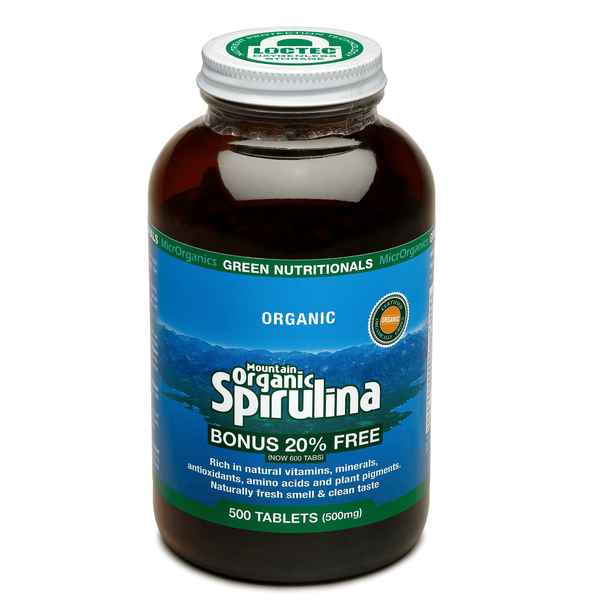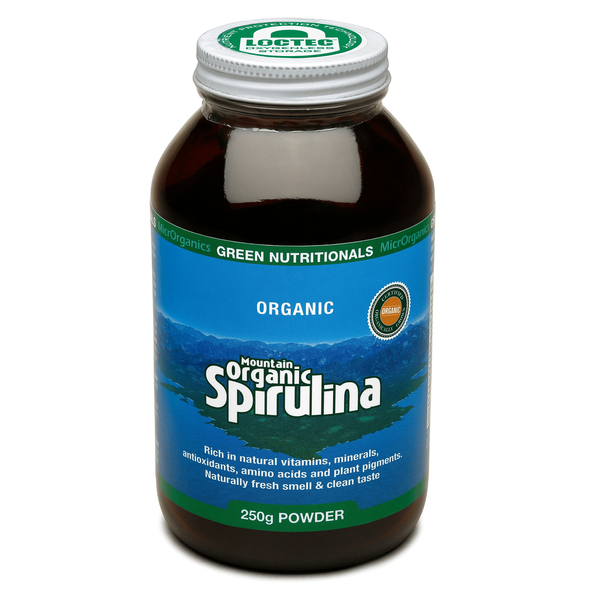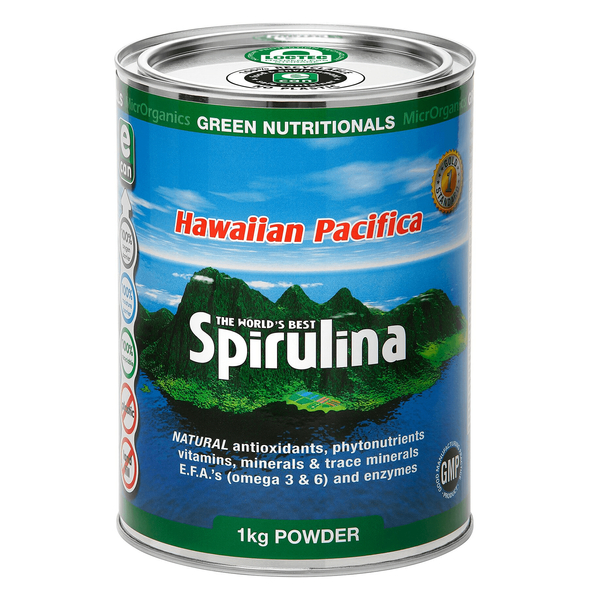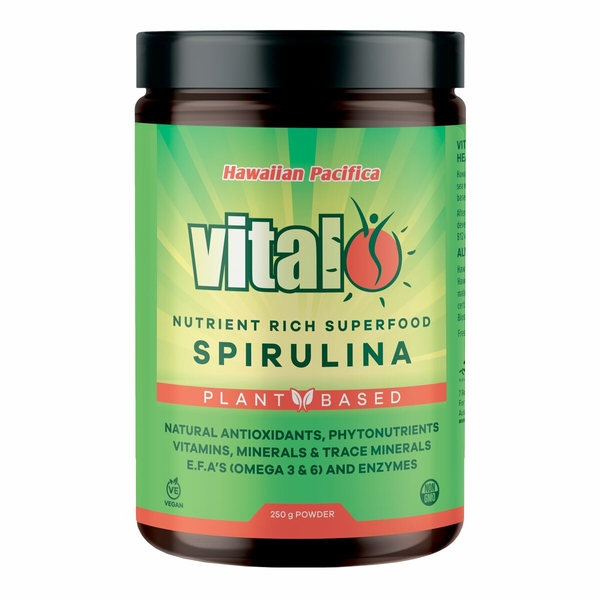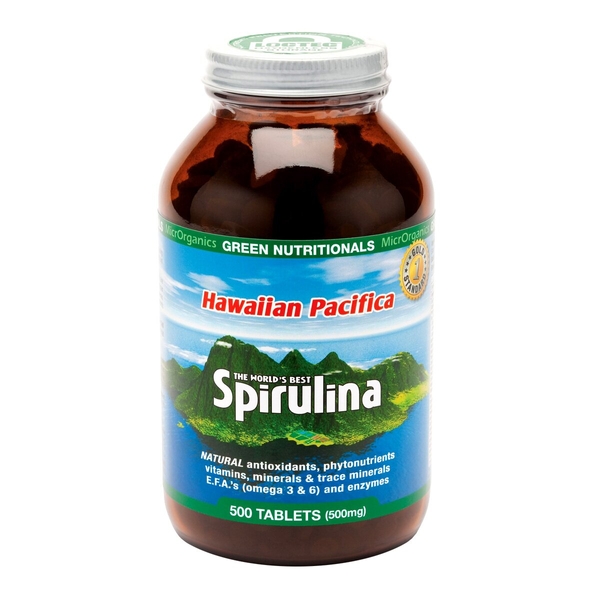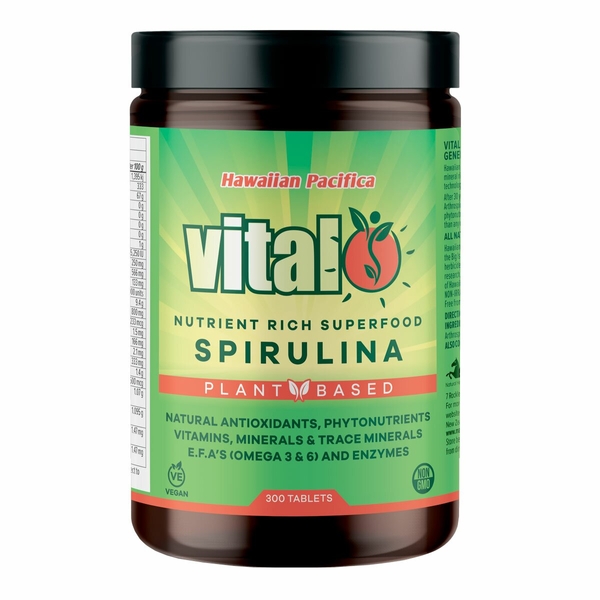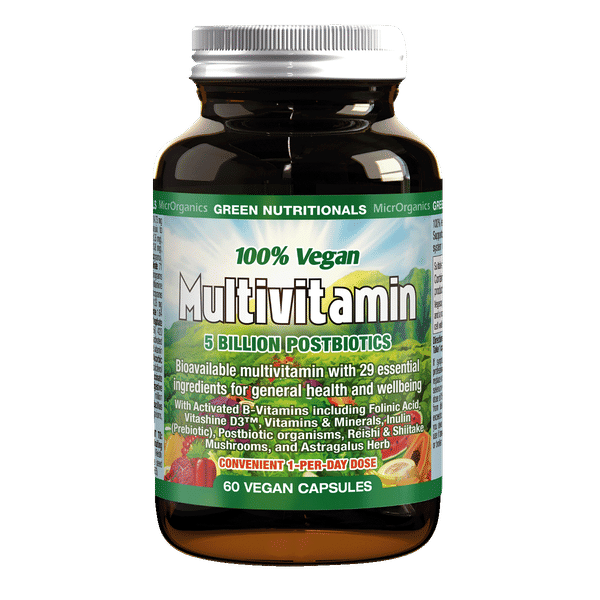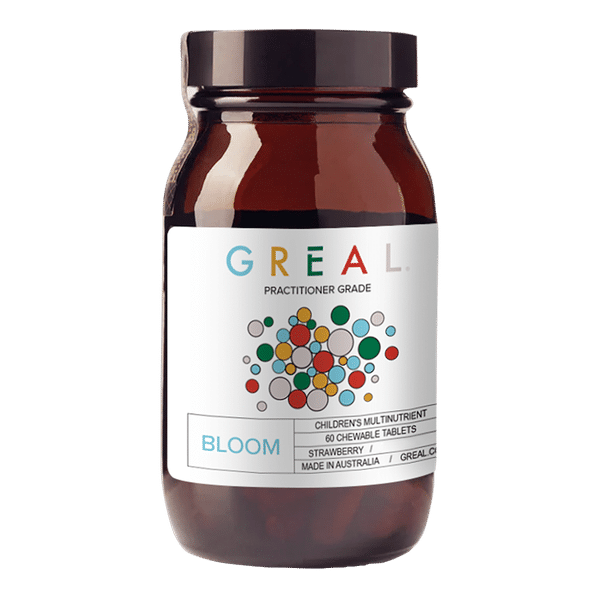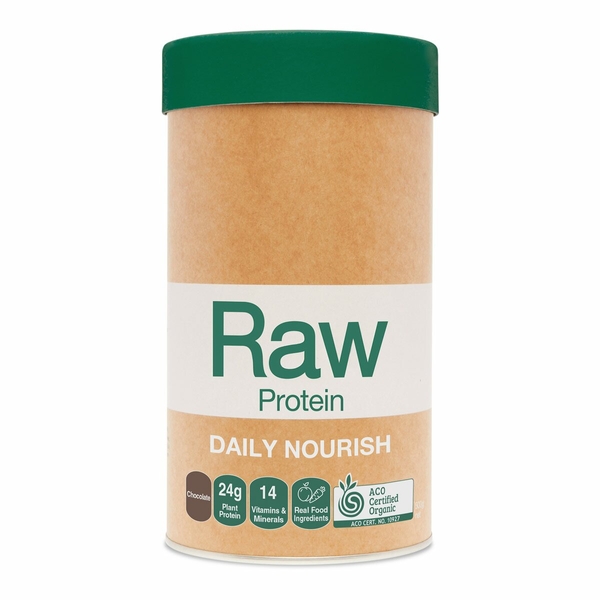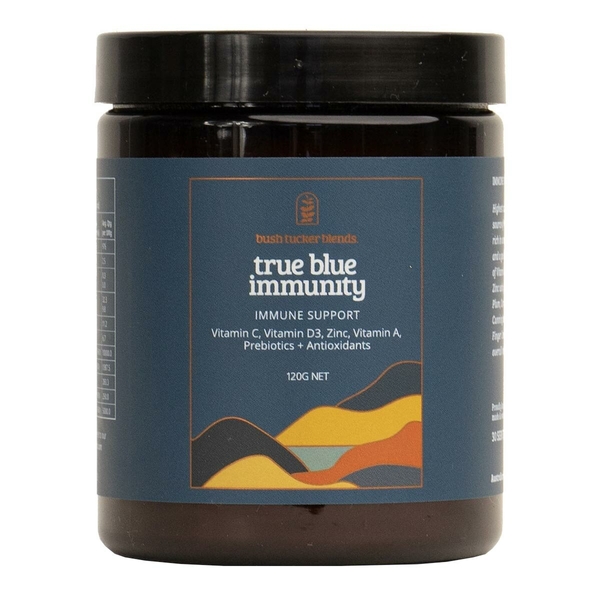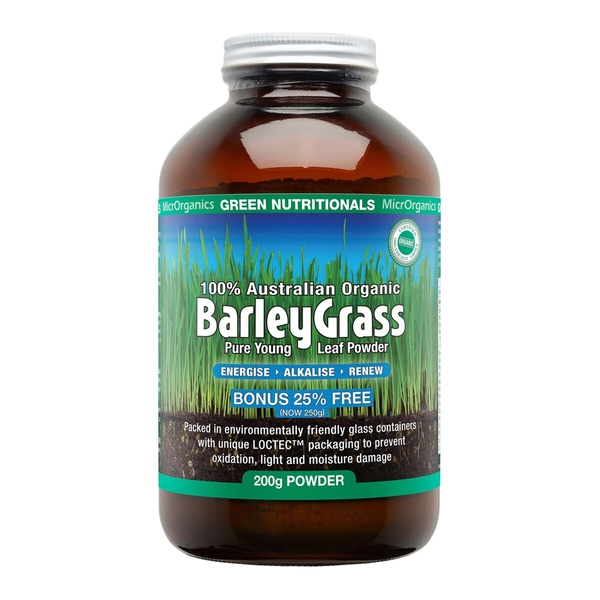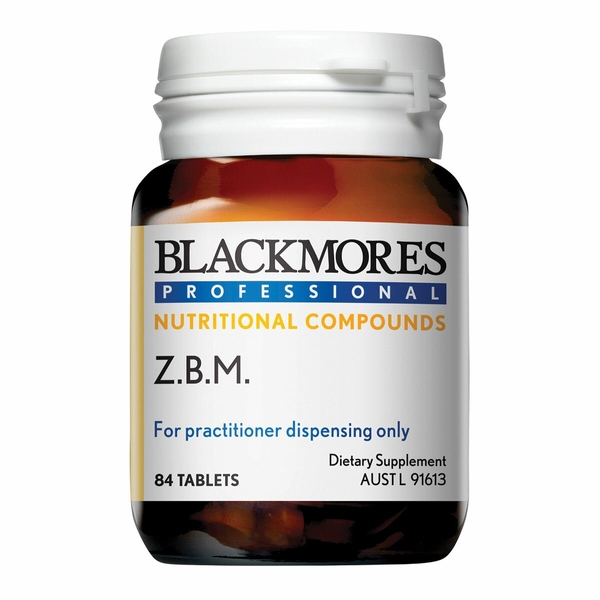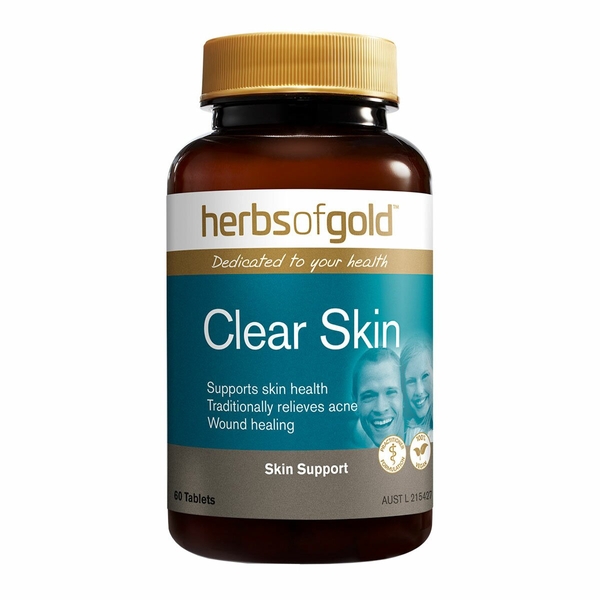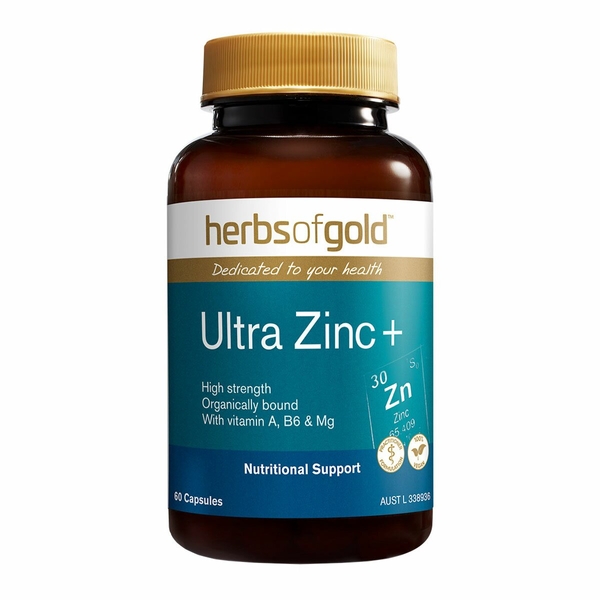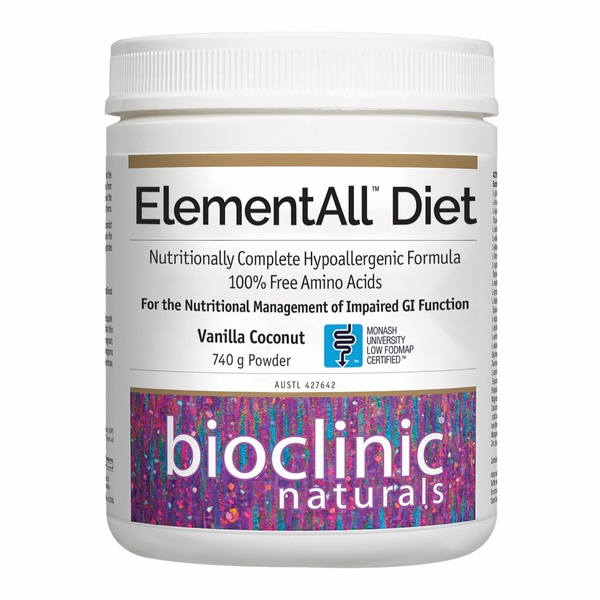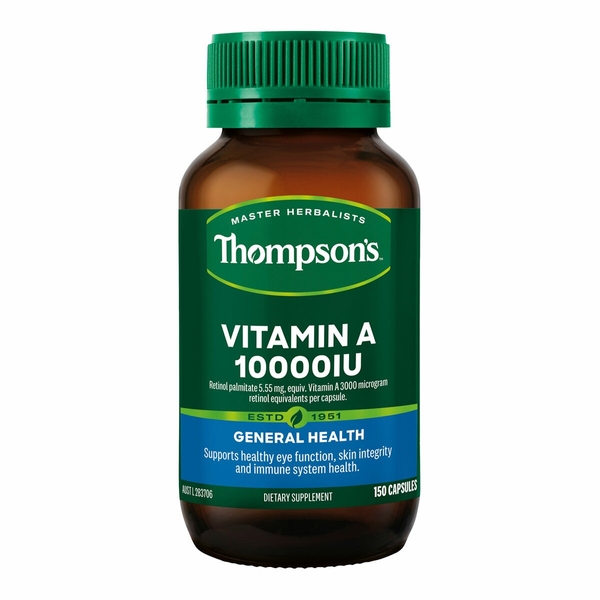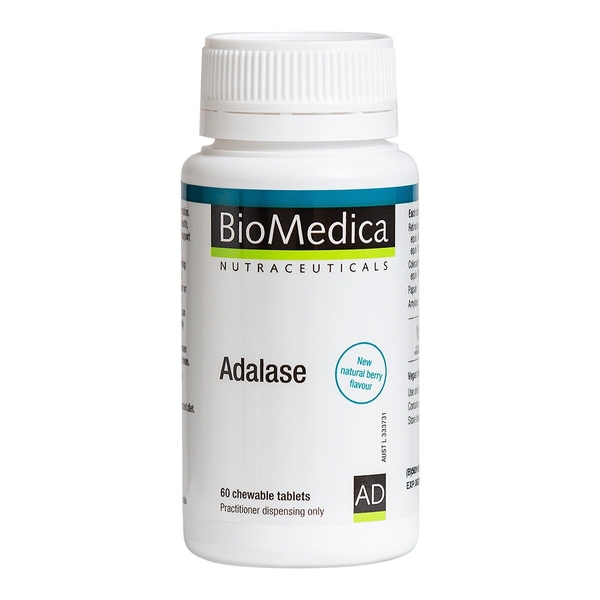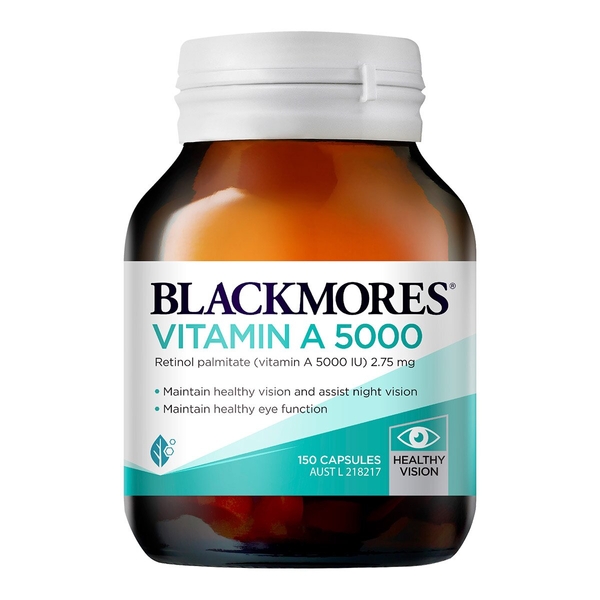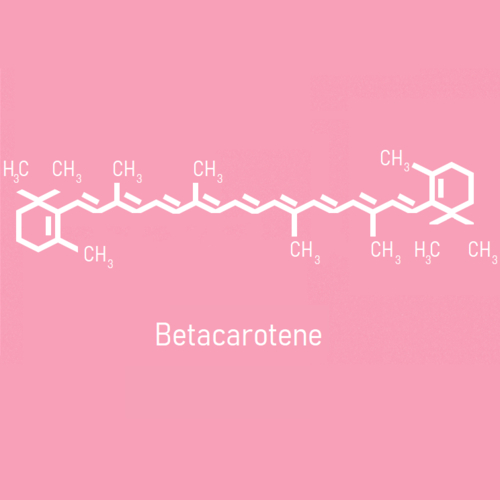
Beta-carotene
Scientific names: Beta-carotene
Alternate names: A-Beta-Carotene, A-Bêta-Carotène, Bêta-Carotène, Bêta-Carotène Tout Trans, Beta-Caroteno, Carotenes, Carotènes, Carotenoids, Caroténoïdes, Caroténoïdes Mélangés, Mixed Carotenoids, Provitamin A, Provitamine A
Actions: Anti-inflammatory, Antioxidant, Cancer, Cardiovascular, Dermatological
Background
Beta-carotene belongs to a group of colored pigments called carotenoids. It's converted to vitamin A in the body and found in many fruits and vegetables.
Beta-carotene and other red, orange, and yellow pigments called carotenoids are considered antioxidants. They provide about 50% of the vitamin A needed in the diet. Vitamin A is an essential nutrient. Its antioxidant and anti-inflammatory effects help to protect cells from damage.
People use beta-carotene for an inherited disorder marked by sensitivity to light. It is also used to prevent certain cancers, heart disease, cataracts, aging skin, and many other purposes, but there is no good scientific evidence to support most of these uses.
Many global health authorities recommend getting beta-carotene and other antioxidants from food instead of supplements.
Beta-carotene and other red, orange, and yellow pigments called carotenoids are considered antioxidants. They provide about 50% of the vitamin A needed in the diet. Vitamin A is an essential nutrient. Its antioxidant and anti-inflammatory effects help to protect cells from damage.
People use beta-carotene for an inherited disorder marked by sensitivity to light. It is also used to prevent certain cancers, heart disease, cataracts, aging skin, and many other purposes, but there is no good scientific evidence to support most of these uses.
Many global health authorities recommend getting beta-carotene and other antioxidants from food instead of supplements.
Safety Safety definitions
When taken by mouth: Beta-carotene is likely safe when taken in appropriate amounts for certain medical conditions. But beta-carotene supplements are not recommended for general use.
Beta-carotene supplements are possibly unsafe when taken by mouth in high doses, especially when taken long-term. High doses of beta-carotene can turn skin yellow or orange. Taking high doses of beta-carotene supplements might also increase the chance of death from all causes, increase the risk of certain cancers, and possibly cause other serious side effects. Beta-carotene from food does not seem to have these effects.
Children: Beta-carotene is likely safe when taken by mouth in appropriate amounts.
History of asbestos exposure: In people who have been exposed to asbestos, beta-carotene supplements might increase the risk of cancer. Don't take beta-carotene supplements if you have been exposed to asbestos.
Smoking: In people who smoke, beta-carotene supplements might increase the risk of colon, lung, and prostate cancer. Don't take beta-carotene supplements if you smoke.
Beta-carotene supplements are possibly unsafe when taken by mouth in high doses, especially when taken long-term. High doses of beta-carotene can turn skin yellow or orange. Taking high doses of beta-carotene supplements might also increase the chance of death from all causes, increase the risk of certain cancers, and possibly cause other serious side effects. Beta-carotene from food does not seem to have these effects.
Special Precautions & Warnings:
Pregnancy and breast-feeding: Beta-carotene is likely safe when taken by mouth in appropriate amounts. But there isn't enough reliable information to know if high doses of beta-carotene are safe to use when pregnant or breast-feeding. Stay on the safe side and avoid use.Children: Beta-carotene is likely safe when taken by mouth in appropriate amounts.
History of asbestos exposure: In people who have been exposed to asbestos, beta-carotene supplements might increase the risk of cancer. Don't take beta-carotene supplements if you have been exposed to asbestos.
Smoking: In people who smoke, beta-carotene supplements might increase the risk of colon, lung, and prostate cancer. Don't take beta-carotene supplements if you smoke.
Effectiveness
NatMed Pro rates effectiveness based on scientific evidence according to the following scale: Effective, Likely Effective, Possibly Effective, Possibly Ineffective, Likely Ineffective, Ineffective, and Insufficient Evidence to Rate.
Effective Effectiveness definitions
- An inherited disorder marked by sensitivity to light (erythropoietic protoporphyria or EPP)." Taking beta-carotene by mouth can reduce sensitivity to the sun in people with this condition.
Possibly effective Effectiveness definitions
- Breast cancer. Eating more beta-carotene in the diet is linked to a lower risk of breast cancer in high risk, pre-menopausal females. In people with breast cancer, eating more beta-carotene in the diet is linked to an increased chance of survival.
- Complications after childbirth. Taking beta-carotene by mouth before, during, and after pregnancy might decrease the risk of diarrhea and fever after childbirth. It also seems to reduce the risk of pregnancy-related death.
- Sunburn. Taking beta-carotene by mouth might decrease sunburn risk in people sensitive to the sun.
Likely ineffective Effectiveness definitions
- Cancer. Taking beta-carotene by mouth does not reduce the risk for most types of cancer.
- Heart disease. Taking beta-carotene by mouth does not reduce the risk for heart disease. It might actually increase the risk for heart disease-related death in some people.
- Non-cancerous growths in the large intestine and rectum (colorectal adenoma). Taking beta-carotene by mouth does not decrease the risk of these growths. In people who smoke cigarettes and drink alcohol, taking beta-carotene supplements might actually increase the risk for these growths.
- Lung cancer. Taking beta-carotene supplements by mouth seems to increase the risk of lung cancer in some people. Beta-carotene from food does not seem to have this effect.
- Prostate cancer. Taking beta-carotene supplements by mouth does not prevent prostate cancer in most people. In fact, taking beta-carotene supplements might actually increase the risk of prostate cancer in some people.
Possibly ineffective Effectiveness definitions
- Ballooning of a blood vessel wall (aneurysm). Taking beta-carotene by mouth doesn't reduce the risk for an aneurysm in the stomach in male smokers.
- Alzheimer disease. Eating a diet high in beta-carotene does not seem to reduce the risk of Alzheimer disease.
- Cataracts. Taking beta-carotene by mouth, alone or together with vitamin C, vitamin E, and zinc, doesn't seem to reduce the risk or progression of cataracts.
- Cystic fibrosis. Taking beta-carotene by mouth does not improve lung function in people with cystic fibrosis.
- Diabetes. Taking beta-carotene by mouth doesn't reduce the risk of developing diabetes or diabetes-related complications.
- Non-cancerous moles (dysplastic nevi). Taking beta-carotene by mouth does not reduce the development of new moles.
- Cancer of the esophagus. Taking beta-carotene by mouth doesn't seem to reduce the risk of esophageal cancer.
- Liver cancer. Taking beta-carotene by mouth, alone or with vitamin E, does not prevent liver cancer in male smokers.
- Liver disease. Taking beta-carotene by mouth, alone or with vitamin E, does not prevent death due to liver disease in male smokers.
- Death from any cause. Taking beta-carotene by mouth doesn't seem to reduce the risk of death from any cause.
- Stroke. Taking beta-carotene by mouth does not reduce the risk of stroke in male smokers. It might actually increase the risk in people who drink alcohol.
Dosing & administration
Beta-carotene is found in many fruits and vegetables. Eating five servings of fruits and vegetables daily provides 6-8 mg of beta-carotene. Many global health authorities recommend getting beta-carotene and other antioxidants from food instead of supplements. Regularly taking beta-carotene supplements for general use isn't recommended. Speak with a healthcare provider to find out what dose might be best for a specific condition.
Interactions with pharmaceuticals
Niacin
Interaction Rating=Moderate Be cautious with this combination.
Niacin can increase good cholesterol levels. Taking beta-carotene along with vitamin E, vitamin C, and selenium can decrease the effects of niacin on good cholesterol levels. It is not known if beta-carotene alone decreases the effects of niacin on good cholesterol levels.
Interactions with herbs & supplements
Lutein: Taking beta-carotene supplements might lower levels of lutein in the body.
Interactions with foods
Drinking excessive amounts of alcohol and eating products that contain olestra, a fat substitute, can reduce beta-carotene levels in the body.
Products
View all productsPer capsule:
- Beta-carotene (Carotenoids) 1 mg
- Levomefolate glucosamine (Activated folate) 451 µg equiv. levomefolic acid 250 µg
- Hydroxocobalamin (Vitamin B12) 250 µg
- Potassium iodide 177 µg equiv. iodine 135 µg
- Iron bisglycinate 44.40 mg equiv. iron 12 mg
- Thiamine hydrochloride (Vitamin B1) 19.06 mg equiv. thiamine 15 mg
- Riboflavin 5-phosphate sodium (Activated B2) 6.58 mg equiv. riboflavin 5 mg
- Nicotinamide (Vitamin B3) 10 mg
- Calcium pantothenate (Vitamin B5) 27.29 mg equiv. pantothenic acid 25 mg
- Pyridoxal 5-phosphate monohydrate (P5P) 7.84 mg equiv. pyridoxine 5 mg
- Choline bitartrate 291.76 mg equiv. choline 120 mg
- Inositol 25 mg
- Biotin 200 µg
- Magnesium ascorbate monohydrate (Vitamin C) 47.36 mg equiv. ascorbic acid 42.50 mg equiv. magnesium 2.93 mg
- Cholecalciferol 12.50 µg equiv. vitamin D3 500 IU
- Chromium picolinate 201.10 µg equiv. chromium 25 µg
- Magnesium amino acid chelate 125 mg equiv. magnesium 25 mg
- Manganese amino acid chelate 10 mg equiv. manganese 1 mg
- Molybdenum trioxide 37.50 µg equiv. molybdenum 25 µg
- Selenomethionine 80.7 µg equiv. selenium 32.5 µg
- Zinc citrate dihydrate 37.38 mg equiv. zinc 12 mg
- Ubidecarenone (Coenzyme Q10) 50 mg
- Silica - colloidal anhydrous 7 mg
- Tagetes erecta ext. 20 mg
$54.98
Sold out
Create account
return unknown
RRP: $59.97$50.97Save: 15%
Create account
RRP: $87.22$74.14Save: 15%
Create account
RRP: $68.67$58.37Save: 15%
Create account
RRP: $207.25$176.16Save: 15%
Create account
RRP: $59.95$38.97Save: 35%
Create account
RRP: $81.74$69.48Save: 15%
Create account
RRP: $49.95$32.47Save: 35%
Create account
Per capsule:
- Beta-carotene (Carotenoids) 8.5 mg VBAF equiv. beta-carotene 1.7 mg
- Zinc amino acid chelate 17.5 mg equiv. zinc 3.5 mg
- Mecobalamin (Vitamin B12) 2.4 μg
- Cholecalciferol 1.5 mg equiv. vitamin D3 150 IU
- Ascorbic acid (Vitamin C) 22.5 mg
- d-alpha-Tocopheryl acid succinate 4.62 mg equiv. vitamin E 5.6 IU
- Calcium citrate 134.73 mg equiv. calcium 32.5 mg
- Magnesium citrate 123.73 mg equiv. magnesium 20 mg
- Manganese amino acid chelate 13.8 mg equiv. manganese 1.38 mg
- Selenomethionine 44 μg equiv. selenium 17.72 μg
- Silicon dioxide 32.1 mg equiv. silicon 15 mg
- Chromium picolinate 71 μg equiv. chromium 8.8 μg
- Biotin 7.5 μg
- Thiamine hydrochloride (Vitamin B1) 380 μg equiv. thiamine 300 μg
- Riboflavin 5-phosphate sodium (Activated B2) 550 μg equiv. riboflavin 400 μg
- Nicotinamide (Vitamin B3) 2.75 mg equiv. nicotinic acid 1.25 mg
- Calcium pantothenate (Vitamin B5) 1.64 mg equiv. pantothenic acid 1.51 mg
- Pyridoxal 5-phosphate monohydrate (P5P) 660 μg equiv. pyridoxine 420 μg
- Calcium folinate (Activated folate) 108 μg equiv. folinic acid 100 μg
- Inulin (Dietary fibre) 100 mg
- Lactobacillus acidophilus 100 million
- Lactobacillus rhamnosus 1.2 billion
- Lactobacillus paracasei 1 billion
- Lactobacillus plantarum 1 billion
- Bifidobacterium animalis ssp. lactis 1.7 billion
- Astragalus membranaceus ext. 6 mg
- Lentinula edodes ext. 10 mg
- Ganoderma lucidum ext. 10 mg
RRP: $47.20$40.12Save: 15%
Create account
Per tablet (Strawberry):
- Retinol palmitate 276 μg equiv. vitamin A 150 μg RE
- Beta-carotene 300 μg
- Calcium ascorbate dihydrate 60.86 mg equiv. calcium equiv. ascorbic Acid 50 mg
- Hydroxocobalamin (Vitamin B12) 20 μg
- Co-methylcobalamin (Vitamin B12) 10 μg
- Cholecalciferol 8 μg equiv. vitamin D3 340 IU
- Tocopherols concentrate - mixed (low-alpha type) 3 mg
- Zinc glycinate 16.33 mg equiv. zinc 5 mg
- Thiamine hydrochloride (Vitamin B1) 500 μg equiv. thiamine 393 μg
- Riboflavin 5-phosphate sodium (Activated B2) 657 μg equiv. riboflavin 500 μg
- Nicotinamide (Vitamin B3) 6 mg
- Calcium pantothenate (Vitamin B5) 5.46 mg equiv. pantothenic acid 5 mg
- Pyridoxal 5-phosphate monohydrate (P5P) 1.56 mg equiv. pyridoxine 1 mg
- Levomefolate glucosamine (Activated folate) 89 μg equiv. levomefolic acid 50 μg
- Calcium folinate (Activated folate) 108 μg equiv. folinic acid 100 μg
- Potassium iodide 65 μg equiv. iodine 50 μg
- Phytomenadione (Vitamin K1) 1 μg
- Menaquinone 7 (Vitamin K2) 22 μg
- Manganese gluconate 2.43 mg equiv. manganese 0.3 mg
- Molybdenum trioxide 30 μg equiv. molybdenum 20 μg
- Selenomethionine 49 μg equiv. selenium 20 μg
- Tagetes erecta ext. 4 mg
- Biotin 10 μg
- Citrus bioflavonoids extract 10 mg
- Choline bitartrate 24.31 mg equiv. choline 10 mg
- Ferrous fumarate 9.13 mg equiv. iron 3 mg
- Calcium phosphate 154.83 mg equiv. calcium 60 mg
- Magnesium phosphate pentahydrate 242.01 mg equiv. magnesium 50 mg
- Borax 4.41 mg equiv. boron 0.5 mg
- Lysine hydrochloride 25 mg equiv. lysine 20 mg
- Inositol 25 mg
- Glycine 150 mg
- Taurine 25 mg
$65.00
Create account
Per 35 g (Chocolate):
- Golden pea protein (sprout) bio-fermented
- Theobroma cacao (Cocoa powder)
- Sea mineral complex
- Magnesium (marine)
- Zingiber officinale
- Spinacia oleracea (Spinach)
- Brassica oleracea var. italica
- Daucus carota powder (Carrot)
- Beta vulgaris (root) powder (Beetroot)
- Lycopersicon esculentum (Tomato)
- Lentinula edodes
- Malus (Apple)
- Vaccinium macrocarpon
- Natural cherry flavour
- Orange
- Vaccinium corymbosum
- Fragaria ananassa (Strawberry)
- Natural flavours
- Pea (fibre) sprouted
- Acacia sp. (gum)
- Stevia rebaubiana
RRP: $59.95$47.96Save: 20%
Create account
Per 4 g:
- Terminalia ferdinandiana
- Centipeda cunninghamii
- Citrus australasica
- Green banana
- Mango (fruit)
- Red orange
- Sweet potato powder
- Malpighia glabra
- Sambucus nigra juice dry
- Cucurbita pepo (seed) powder
- Cholecalciferol
$59.95
Create account
Practitioner product
Per tablet:
RRP: $49.95$39.96Save: 20%
Create account
Per capsule:
- Retinol acetate 450 µg RE equiv. vitamin A 1500 IU
- Zinc amino acid chelate 100 mg equiv. zinc 20 mg
- Zinc citrate dihydrate 52.96 mg equiv. zinc 17 mg
- Zinc gluconate 92.86 mg equiv. zinc 13 mg
- Magnesium amino acid chelate 100 mg equiv. magnesium 20 mg
- Pyridoxine hydrochloride (Vitamin B6) 20 mg equiv. pyridoxine 16.5 mg
RRP: $30.50$24.40Save: 20%
Create account
Per 37 g:
- Retinol palmitate 418.58 µg equiv. vitamin A 767 IU
- Glutamine 2.22 g
- L-leucine 1.68 g
- Lysine hydrochloride 451.03 mg equiv. lysine 361 mg
- L-isoleucine 450 mg
- L-valine 450 mg
- L-phenylalanine 200 mg
- L-threonine 200 mg
- Cysteine hydrochloride 45 mg equiv. cysteine 31.04 mg
- L-methionine 120 mg
- L-tyrosine 112.5 mg
- Histidine hydrochloride 185.25 mg equiv. l-histidine 150 mg
- L-aspartic acid 111 mg
- L-proline 111 mg
- L-serine 27.75 mg
- Glycine 27.75 mg
- L-alanine 27.75 mg
- Taurine 11 mg
- Levocarnitine tartrate (L-carnitine) 10.99 mg equiv. levocarnitine 7.5 mg
- Potassium citrate 402.6 mg equiv. potassium 145.74 mg
- Magnesium citrate 167.09 mg equiv. magnesium 27 mg
- Magnesium glycerophosphate 49.99 mg equiv. magnesium 6.25 mg
- Calcium phosphate 62.64 mg equiv. calcium 25 mg
- Calcium glycerophosphate 393.27 mg equiv. calcium 75 mg
- Ferrous fumarate 45.6 mg equiv. iron 1.5 mg
- Manganese sulphate monohydrate 1.02 g equiv. manganese 330 µg
- Zinc sulphate monohydrate 5.74 mg equiv. zinc 2.08 mg
- Selenomethionine 28.64 µg equiv. selenium 11.54 µg
- Copper sulfate pentahydrate 656.27 µg equiv. copper 167 µg
- Molybdenum trioxide 12 µg equiv. molybdenum 8 µg
- Chromic chloride hexahydrate 46.95 µg equiv. chromium 9.16 µg
- Chromium picolinate 30.89 µg equiv. chromium 3.84 µg
- Potassium iodide 22.25 µg equiv. iodine 17 µg
- Borax 2.2 mg equiv. boron 250 µg
- Choline bitartrate 80.84 mg equiv. choline 33.25 mg
- Sodium ascorbate (Vitamin C) 22.5 mg equiv. ascorbic acid 20 mg
- dl-alpha-Tocopheryl acetate 10 mg equiv. vitamin E 10 IU
- Nicotinamide (Vitamin B3) 3.25 mg
- Pyridoxine hydrochloride (Vitamin B6) 790 µg equiv. pyridoxine 650 µg
- Cholecalciferol 1.65 µg equiv. vitamin D3 66 IU
- Riboflavin (Vitamin B2) 500 µg
- Thiamine nitrate (Vitamin B1) 616.83 µg equiv. thiamine 500 µg
- Folic acid 31.27 µg
- Biotin 50 µg
- Calcium pantothenate (Vitamin B5) 3.53 mg equiv. pantothenic acid 3.25 mg
- Phytomenadione (Vitamin K1) 10 µg
- Cyanocobalamin (Vitamin B12) 2 µg
- Glucose monohydrate (Dextrose) 12.5 g
- Sunflower lecithin 250 mg
- Levomefolate glucosamine (Activated folate) 8 µg equiv. levomefolic acid 4.5 µg
- Medium Chain Triglycerides (powder) (MCT) 3 g
Practitioner product
RRP: $28.00$20.71Save: 26%
Create account
Per tablet:
- Retinyl acetate (Vitamin A) 3.36 mg equiv. vitamin A 9500 IU equiv. retinol equivalents 2850 μg
- Carica papaya (Papain) 190 mg
- Amylase enzyme 63.4 mg equiv. amylase 9754 DU
- Cholecalciferol 9.5 μg equiv. vitamin D3 380 IU
Practitioner product
RRP: $20.99$16.79Save: 20%
Create account
vital.ly has licensed monographs from TRC Healthcare.
This monograph was last reviewed on 17/12/2024 11:00:00 and last updated on 06/11/2014 19:09:01. Monographs are reviewed and/or updated multiple times per month and at least once per year.
Natural Medicines disclaims any responsibility related to medical consequences of using any medical product. Effort is made to ensure that the information contained in this monograph is accurate at the time it was published. Consumers and medical professionals who consult this monograph are cautioned that any medical or product related decision is the sole responsibility of the consumer and/or the health care professional. A legal License Agreement sets limitations on downloading, storing, or printing content from this Database. No reproduction of this monograph or any content from this Database is permitted without written permission from the publisher. It is unlawful to download, store, or distribute content from this site.

